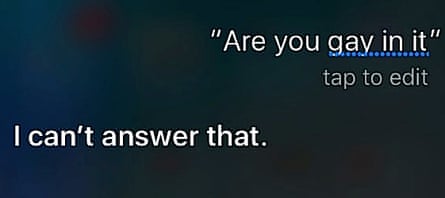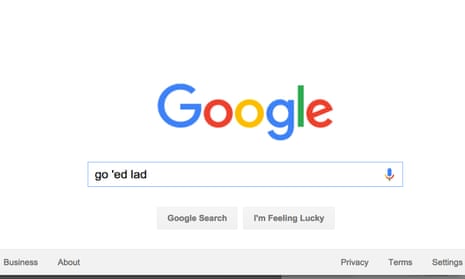I’m a big fan of travel. Travel is great – whether it is the Trans-Siberian railway or trekking in the Amazon. And from Citymapper to TripAdvisor, technology has made travel a lot easier.
But perhaps my favourite travel aide is Google Translate.
The web version of Translate has always been handy for deciphering comments from my overseas “fans” (admittedly, often what I hope are compliments turn out to thinly veiled abuse, but life is cruel). But since Translate launched as an iOS and Android app with text, speech, image and video input options, the possibilities for overcoming language barriers have rocketed.
Translate now serves 90 languages and is used by 200 million people. The app allows you to speak directly into a smartphone microphone and have the speech translated into either text or audio (according to language preferences). This is a genuinely brilliant way to have face-to-face conversations with individuals who speak different languages.
Scouse is not a different language, but it may as well be.
Scouse, the word for a Liverpudlian accent, elicits polar reactions. People either love it or hate it, if they understand it. It is a very distinct dialect. I can say this as I am a Scouser.

Not only is the accent elaborate, adorning words with extra vowels, or sometimes chopping off whole syllables, but there also exist specific Scouse words and terms: “trabs” for instance, to mean trainers. The accent has evolved over time, from the 60s lilt of the Beatles and Cilla Black to the quick patter of the post-match Steven Gerrard interview.
As someone who moved abroad at 18, and then lived in Oxford for a while, and now lives in That London, my accent isn’t super strong. But it is recognisable. And it comes back brilliantly when I go back up to the Pool.
I started to wonder what the limitations of translation apps like Google Translate and other voice activated and recognition software are when it comes to understanding regional accents. If you are speaking to a person from a different country who is struggling to understand their accent and call on Translate to help – will Google understand?
I decided to find out how Google Translate would deal with the rolling rs and glottal stops of a strong Liverpool accent.
Is it as helpful for people with regional accents as for those speaking received pronunciation? I tested how well Google deciphers the speech input of a Scouse accent when translating it into various languages, and back into English.
The first Liverpudlian vernacular I tested was: “Go ‘ed, lad”. Which is essentially a measure of encouragement. You might yell it at a football player streaming up the right wing, bearing down on goal. (In Liverpool, everyone is “lad”, regardless of their gender).
To Google, “go ‘ed, lad” was translated into French as content (“content de”), it thought I’d said “glad”. When I typed, rather than spoke, the same Scouse phrase into Google to translate into Danish, the result meant “go oath boy”. I will scream this from the terraces the next time I am at Anfield and report back.
“He’s doing my head in you know, I might just sack him off” is roughly equivalent to saying, “this guy is really annoying, I think I’ll dump him”. But to sack something off can mean to decide against something in general.

This translated into Dutch as: “Is there with me I do not know maybe I just suck them off”. If you are a fellow Liverpudlian and on a weekend jolly to Amsterdam, do not rely on the Google Translate app. You will end up sexually propositioning someone via word-salad.
And it didn’t matter how many times I tried “devooed” (devastated), it came out as “devilled” in every language. Which isn’t even a word. Except in the egg sense.
“Jarg”, which is a Scouse term to mean rubbish or a knock-off, is translated into Russian as вминать or “dent”.
“Proper auld (old) man, like” translated, vaguely accurately, into Japanese as 以下のような適切な老人, or “appropriate elderly, such as”.
“Going the offy for some ale” ie going to the off-licence for some booze, perplexed Google, which when translated into Portuguese thought I was saying “going the office for some mail”. So if I’m ever out with some Portugese or Brazilians and I need to go on a wine run, they will assume I am saying: “going to the office for some emails”. This is not how I usually end a Friday night out, especially if on holiday.
“Soz abar you”, a legendary Scouse utterance, a phrase to throw shade, becomes “songs about you”. Quite romantic. This is definitely not in the ballpark of what “soz abar you” is supposed to mean.
“On me bill” (on my own), was either rendered as the name Amy Bell, or “unable”. In Latin, Google tells me this translates as non potuerunt, or more literally: “I could not”. As in, “I could not have a conversation with a foreigner using Google Translate if I had a strong Scouse accent”.
“Proper boss scran” (great food), in Greek becomes “Good boss, Graham”.
Google Translate does not recognsie “gegging”; one of the best Scouse terms. “Gegging in” is to earwig or intrude upon. There is a brilliant way of letting someone in Liverpool know that you have realised they are eavesdropping, which is to say to your interlocutor: “Have you seen that film? Arma-GEG-IN?” and then pointedly throw the gegger a look. Admittedly, this is something that should probably be confined to the schoolyard.
When I say “You gegging in?” Google refuses to acknowledge that I am not saying “You going in?” Which is pretty arlarse of Google.
I then wondered whether Siri, Apple’s “voice recognition personal assistant”, would fare any better.
“Are you gegging in?” I asked, which seems a fair question, given the recent scrutiny and privacy concerns related to microphones in devices and app settings, some of which might, by default, be recording all of the time, 1984-style. Siri, however, thought I was saying “are you gay in it”, and responded with “I can’t answer that”.

Does Siri understand other Scouse phrases? “Is right, lad” and “That’s arlarse”, was met with: “Sorry, I missed that”.
I emailed Google to ask whether it might consider developing a Scouse option for its Translate service.
“Translate should be able to recognise Scouse as an accent almost immediately (and the more you use it, the more it will learn, so the Liverpudlian community is counting on you!)
“It doesn’t recognise slang terms, just accents for now - but perhaps that’s something that will be added to the Translate library in the future.”
Sound. 👍

Comments (…)
Sign in or create your Guardian account to join the discussion